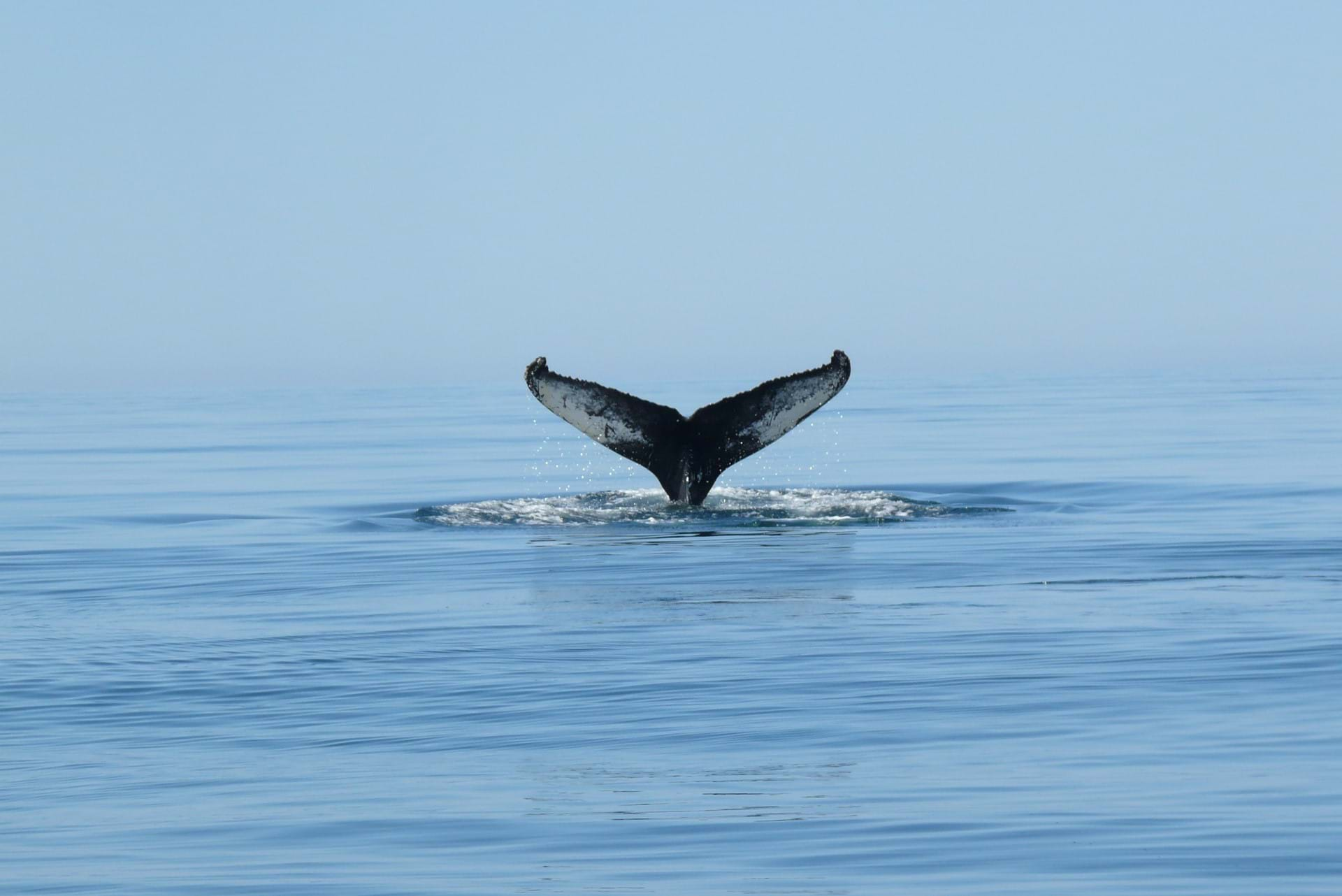
Whale Seeker — Leveraging AI to monitor whales
InnovationThe United Nations recently selected Montreal-based Whale Seeker, a Green Marine partner, as having one of the world’s 10 best artificial intelligence (AI) projects for achieving the UN’s 17 Sustainable Development Goals (SDG).
Whale Seeker leverages AI to simplify the monitoring of whales and other marine life. It builds fast, accurate, user-friendly, automated visual detection tools to learn about the location, habitat, activities and movement of a species. The tools can help to avoid ship strikes, as well as determine whether certain fishing areas need to be off limits for a time.
When Emily Charry Tissier, Whale Seeker’s co-founder and CEO, found out, she literally screamed with delight. “Being acknowledged at this high level is so gratifying because it recognizes that our AI solution is making important quantifiable strides towards achieving SDG 13 and 14, which relate to life under water and to climate,” she says.
It’s all the more important because life under water is the most underfunded SDG.
Unmatchable speed
One of its tools called Möbius can detect marine mammals 25 times faster than a human eye. The software can assess 5,500 images within 53 hours. The same task would take a person 1,300 hours. Whale Seeker uses aerial images to help its clients obtain their required data.
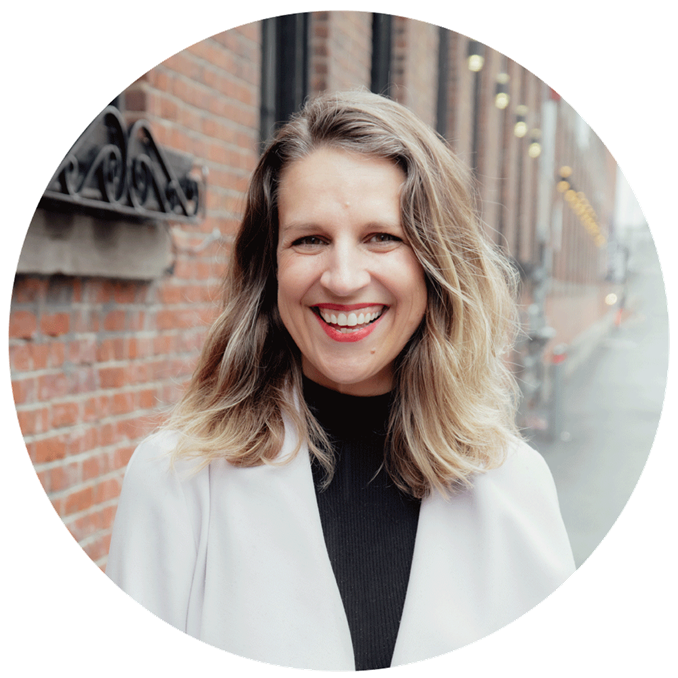
“We first talk with the scientists working for our clients to find out how they have already been using the aircraft, drone and/or occasionally satellite images, as well as to determine the kind of specific data they require to make their necessary findings and/or decisions,” Charry Tissier adds.
As the Möbius algorithm does the initial processing, it will typically identify some images – say 50 out of 10,000 – that require a human expert to further annotate them for the AI’s clearer reference. “The entire data set is then nuanced with that further annotated information and the algorithm runs through everything again,” Charry Tissier explains. “This avoids scientific researchers spending mind-numbing hours checking images that end up not having any marine mammals rather than focusing on where they actually are and what they are doing.”
To help avoid ship collisions, Whale Seeker is currently working to make its AI data available in real time this summer.
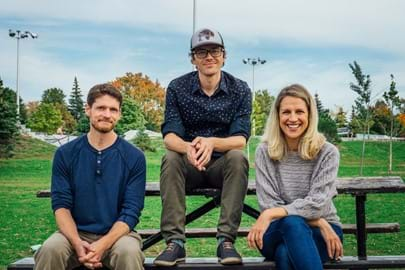
At a juncture when AI is under worldwide scrutiny, the company’s founders appreciate that the AI experts under UNESCO’s auspices have determined that Whale Seeker meets the highest ethical standards of AI creation and use, as well as criteria that call for diversity and inclusion among the team using its AI tools.
B Corp ethics
Whale Seeker is the world’s first Certified B Corporation using AI in the service of wildlife.
“Our for-profit company meets a rigorous evaluation in terms of environmental, social and governance or ESG practices,” Charry Tissier notes. “All our information is on the B Corp site, including our internal hiring policy for inclusion and diversity, the ratio between our highest and lowest paid staff, our practice of doing business with enterprises owned by minorities and women, as well as how we give back to the community.”
Whale Seeker encourages all its employees to take one paid day a year to volunteer in a way of their choosing. “Some have volunteered at their children’s schools, for example, while others have helped out at polling stations,” Charry Tissier shares.
As a Certified B Corporation, Whale Seeker is legally obliged to consider all stakeholders – rather than only shareholders – in every decision it makes. “This requires us to think ahead in terms of all the possible implications of our decisions,” Charry Tissier notes. “We assess all the risks and potential ramifications before moving forward with anything.”
Its ethical stance extends to having a policy that does not share any client’s data. “It belongs to the client and remains private,” Charry Tissier emphasizes.
It’s these kinds of ethical decisions that have to be made by people to ensure that AI is a positive resource.
The AI idea occurred to Charry Tissier, a community ecologist, while she was on maternity leave and working with her husband, Bertrand Charry, to apply his graduate research work as a marine biologist as part of a WWF-Canada Arctic species grant. “He created a protocol for standardizing the detection of narwhal newborns and obtaining more information from aerial imagery to determine the gender, as well as how the animals were eating, socializing, using their habitat and traveling,” she relates.
Under his protocol, the imagery was being used in part for the planning of Canada’s largest marine protected area, the Tallurutiup Imanga National Marine Conservation Area in Lancaster Sound, Nunavut. “It helped to determine critical habitat as well as the areas that merited extra protection or additional monitoring,” Charry Tissier says.
Having to go through 6,000 images to analyze data and write the report did make us think there had to be a better way!
A service solution
Speaking with colleagues, she found out there wasn’t. “We realized this was an issue for marine mammal scientists and other wildlife biologists across many different industries and none of them had either time or the $500,000 for starters to create a bespoke AI solution model,” Charry Tissier shares. “Neither do they have the resources to keep these algorithms running with the necessary expertise and maintenance, so we thought, why not create and maintain this for them and offer it as a service?”
In need of a developer, she happened to strike up a conversation with Antoine Gagné-Turcotte at the dog park after their pets both ran after the same ball. Gagné-Turcotte became the third of the trio of co-founders in 2018.
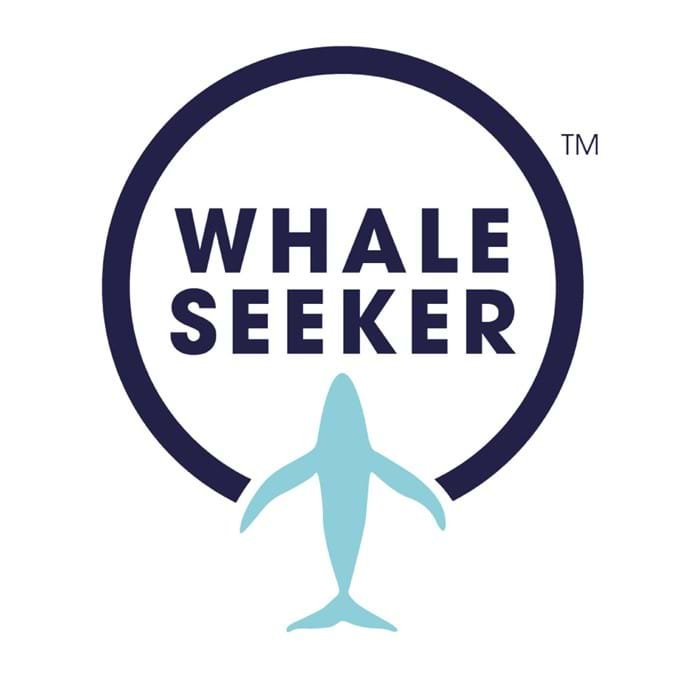
Whale Seeker can look forward to being a lot busier in the months ahead. The UNESCO International Centre for Artificial Intelligence Research has expressed interest in Whale Seeker working with them on preparing its public outreach activities.
The company is also planning to scale up from its current nine employees shortly with the hope that ship owners (including cruise lines), ports, as well as government agencies and environmental consultancies, will seek its help with ocean-friendly endeavours.
“Our multi-disciplinary team includes marine scientists and expert AI developers to deliver the required data for important marine life decisions,” Charry Tissier says. “We’re currently focused on North American waters but speaking with a lot of people in Europe and the United Kingdom.”
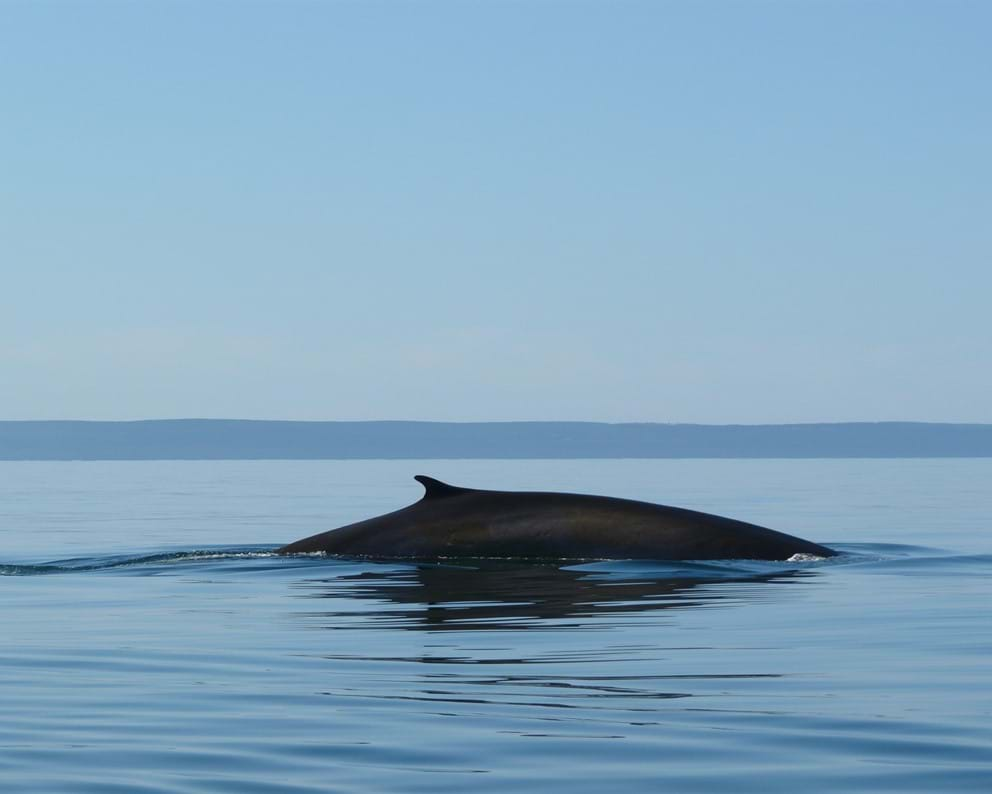
This content is not available because some cookies are blocked.
By clicking on this link, you agree that Youtube may collect data about you for targeting purposes. The video content will be displayed.
Whale Seeker's "Whales are...'' video
